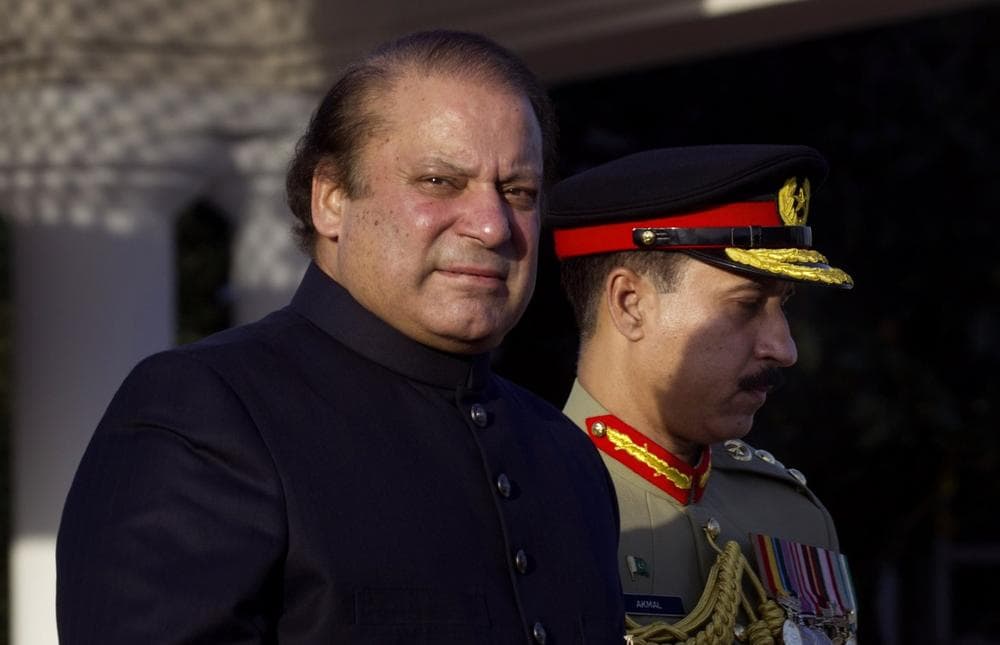Advertisement
Pakistani Prime Minister, Obama To Meet
Resume
No breakthroughs are expected today as Pakistan's new prime minister and President Obama sit down for the first time.
The meeting comes a day after reports from two human rights groups found that U.S. drone strikes are in violation of international law and human rights. The White House responded with the assertion that the U.S. operations against terrorists "are precise, lawful and effective."
U.S. drone policy is just one of the many issues complicating the relationship between the two countries. There is the scheduled withdrawal of American troops from neighboring Afghanistan. The U.S. wants a peace deal between the Taliban and the Afghan government before that withdrawal.
Pakistan is seen the key player in any deal because of its historic relationship with the Taliban — Pakistan helped the Taliban form and take power in Afghanistan in the 1990s, and U.S. intelligence believes that Pakistan still keeps close ties to the group.
Husain Haqqani, Pakistan's former ambassador to the U.S., says in his new book, "Magnificent Delusions," that while the misunderstandings run on both sides, there is no doubt that Pakistan supports terrorism: "My countrymen will someday have to come to terms with global realities. Pakistan cannot become a regional leader in South Asia while it supports terrorism."
Farahnaz Ispahani, a former member of Pakistan's parliament who is now a public policy scholar at the Wilson Center, joins Here & Now's Jeremy Hobson.
Guest
- Farahnaz Ispahani, former member of Pakistan's Parliament, and Public Policy Scholar at the Wilson Center. She tweets @fispahani.
This segment aired on October 23, 2013.